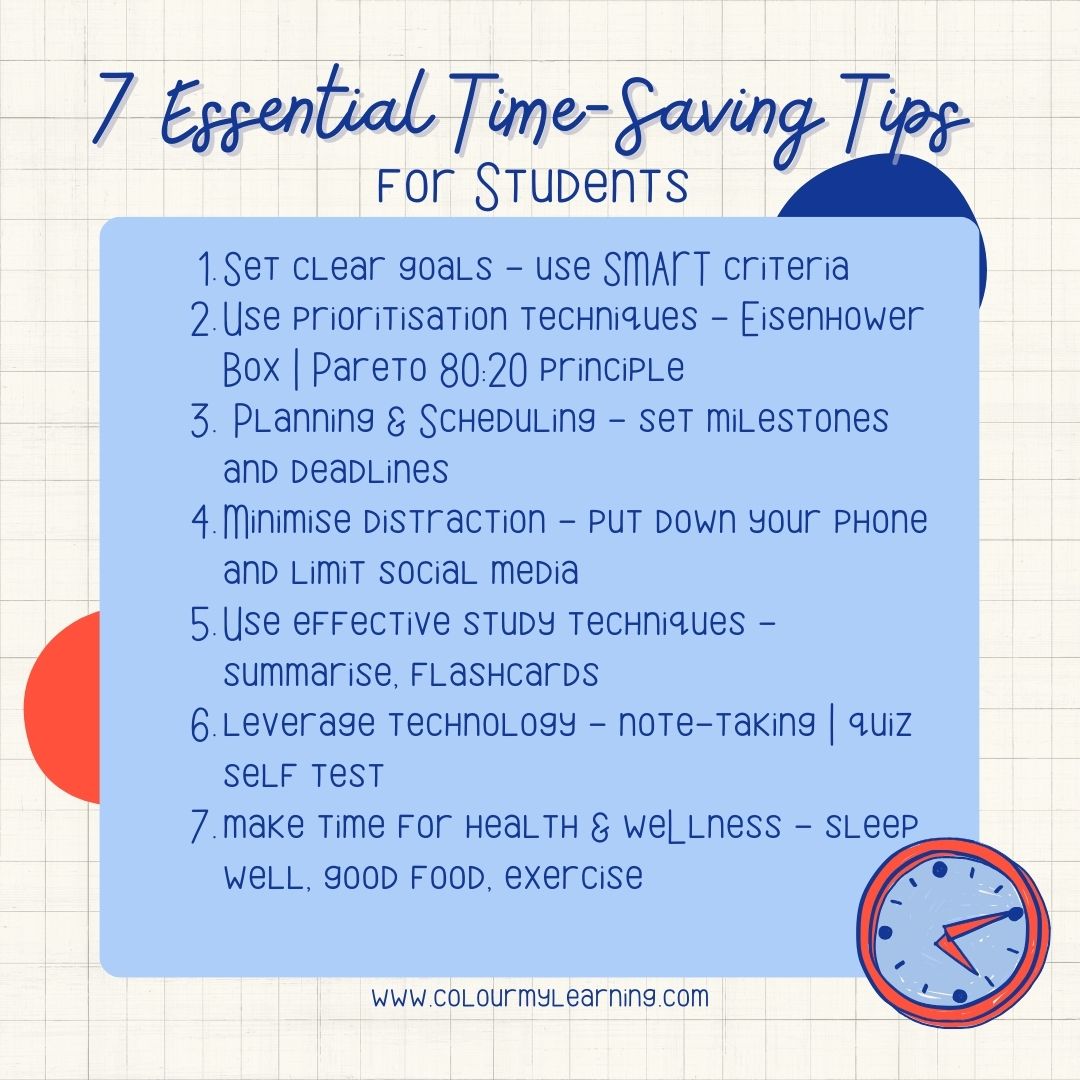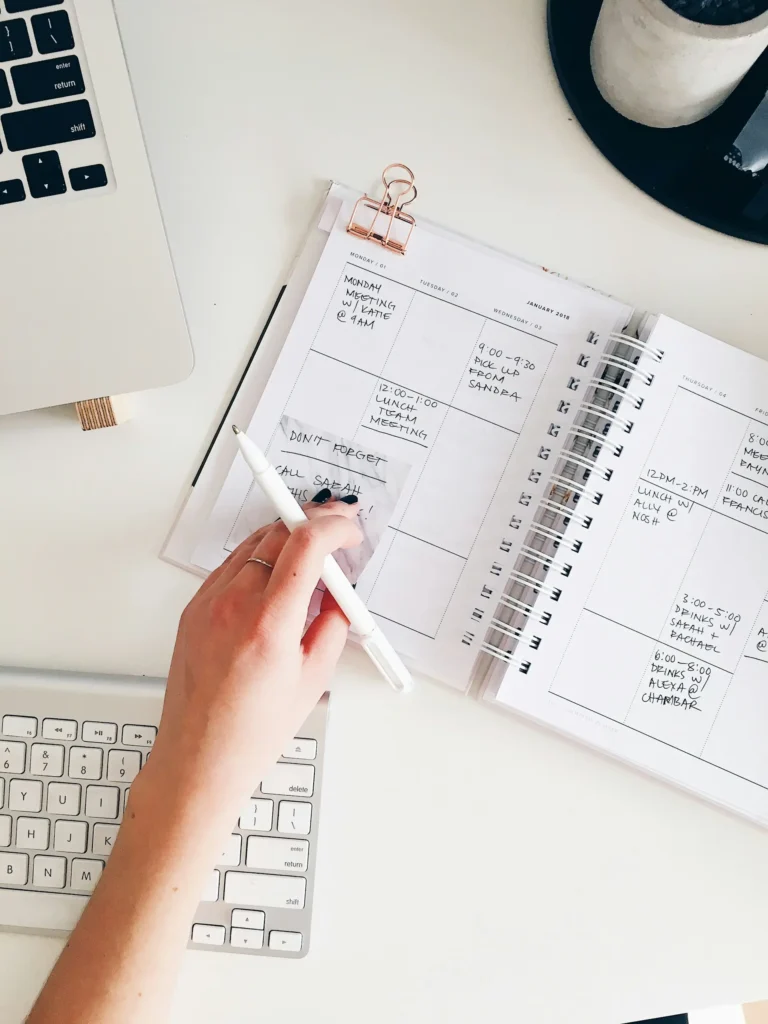7 Essential Time Management Tips for Students: Get More Done in Less Time
Every student at some point or other will feel the crunch of time. Between assignments, exams, extracurricular activities, and social obligations, finding enough hours in the day can often seem impossible. However, mastering a few time management techniques can make a huge difference.
Learning to manage your time efficiently can help you not only keep up but thrive and excel. This post will explore practical tips and strategies to help you optimize your schedule and accomplish more in less time.

1. Set clear goals
The first step in effective time management is setting clear, achievable goals. Utilize the SMART criteria to ensure your goals are Specific, Measurable, Achievable, Relevant, and Time-bound. For example, rather than vaguely aiming to “do well in math,” set a clear goal to “improve my math grade to an A by the end of the semester by completing all assignments on time and attending weekly study sessions.”
2. Use prioritisation techniques
In learning to use your time effectively and efficiently it is crucial to learn to prioritize well. Tools like the Eisenhower Box will help distinguish between what is urgent and what is important. Being able to do so, will allow you to focus on activities that will contribute most to your goals. For instance, completing a term paper due tomorrow would be both urgent and important, while organizing your desk might be important but not necessarily urgent.
Similarly, understanding the Pareto Principle, or 80/20 rule, suggests that 80% of outcomes come from 20% of efforts. Proactively identify and concentrate on tasks that will help yield the most significant results. For example working on past exam questions rather than re-reading your textbook.

3. Planning and scheduling
A well-organized planner or digital calendar is your best ally at managing your time well. Learn to break up large projects into smaller, manageable tasks and set deadlines for each. For example, if you have a major project due in three weeks, set milestones for research, writing an outline, drafting, and for going through a final review. Then set specific dates for each. Being able to design and stick to a schedule will help you work better and more efficiently and ensure that you will overcome that last minute rush.
4. Minimise distractions
Distractions like social media and smartphones can swiftly derail your productivity. Consider using apps like Cold Turkey or Freedom to limit your access to distracting websites during study hours. Creating a dedicated study environment, free from unnecessary interruptions, can also help you to maintain focus and efficiency.

5. Make use of effective study techniques
Effective study techniques are methods of learning that are suited especially to your style of learning. Other active learning techniques such as summarization, self-explanation, and using flashcards are able to contribute significantly to how well you can learn and recall facts and information. The Pomodoro Technique, which involves studying in concentrated 25-minute intervals followed by five-minute breaks, can also be used to enhance your focus and power of concentration. For example, use this method during your study sessions to prepare for exams, setting timers to remind you when to take a break.
6. Leverage technology
Many apps and tools are designed to aid time management and productivity. Tools like Trello for task management, Evernote for note-taking, and Forest for maintaining focus can help you to streamline your revision processes. For instance, using Evernote to organize your notes digitally will allow you to easily search through them when studying for tests. Similarly flashcard apps such as Quizlet will allow you to test your memory and recall either by making your own quizzes or by using ones others have already created.
7. Make time for health and wellness
While you are young, it is so easy to take health and wellness for granted. Front and centre to every success and accomplishment is the importance of good health and mental wellness. Adequate sleep, proper nutrition, and regular exercise can significantly improve your cognitive functions and energy levels, helping you to manage time effectively. For example, a study routine that includes planned meals and exercise breaks can keep your energy levels consistent.

Conclusion
Putting even just a couple of these time-saving tips into action can improve how you manage your daily and academic life. Start small, incorporating a few strategies at a time, to find what works best for you. Continuously evaluate and adjust your approach to develop the most effective routine for your personal and academic success.
Have you tried any of these time management strategies? Share your experiences or additional tips in the comments below! Interested in taking your time management skills to the next level? Sign up for our comprehensive course on time management essentials.
Also read: Essential Skills for Uni: Quick guide to essential time management skills










